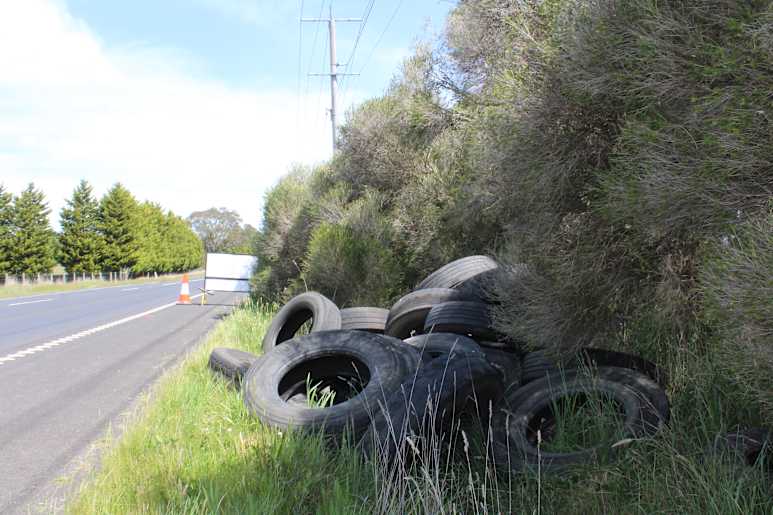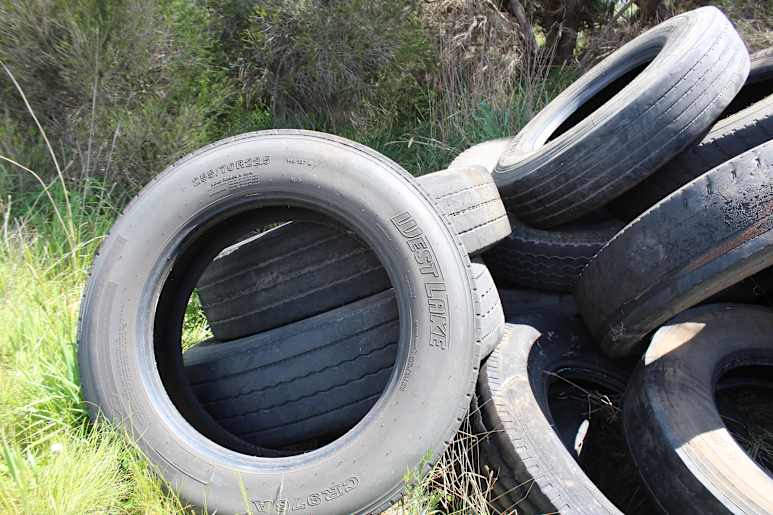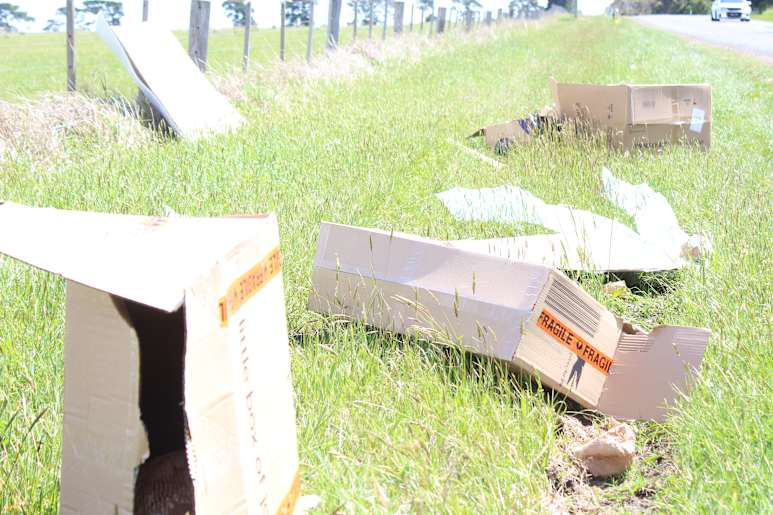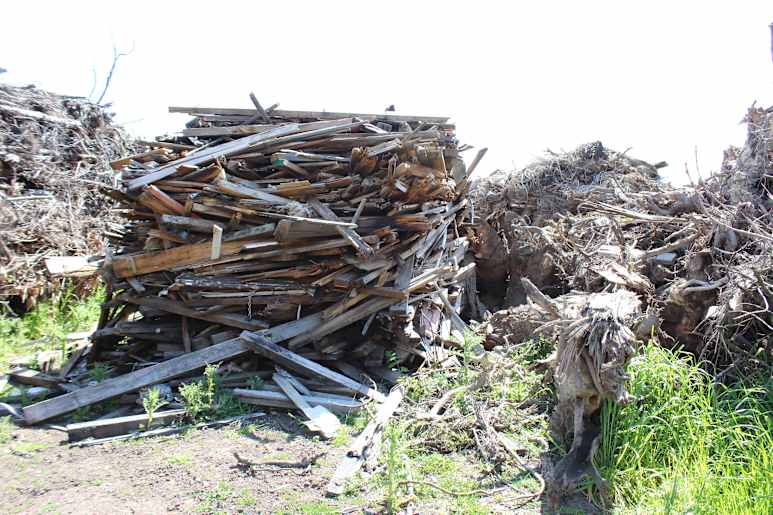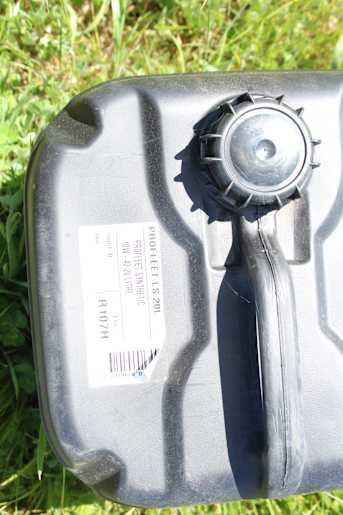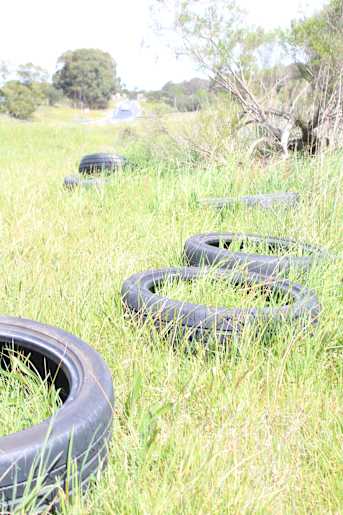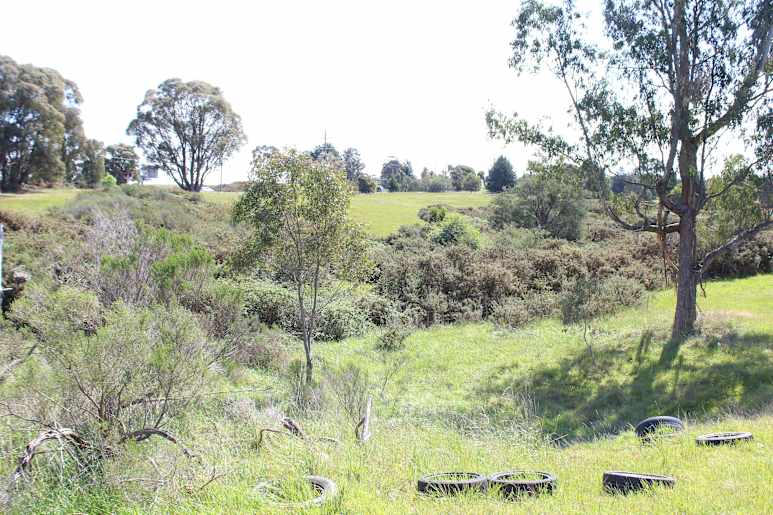THERE’S a pile of truck tyres on the side of Epping Kilmore Road within the City of Whittlesea, they’ve been there since April, dumped late at night or in the early hours of the morning.
There’s packaging from parcels received by a lady in Wallan blatantly discarded on the side of Beveridge Road, with waste blowing into an adjoining paddock.
It’s a small dumping in a spot used frequently to offload household rubbish.
Off Lithgow Street at the end of McKinnon, the Beveridge cul-de-sac ends in a barricade of bolders, the intention to deter illegal dumping.
Building and demolition waste, along with skips-worth of garden waste, lumber and tree removals, the site has been used for going on five years as an unlawful tip, with offenders now choosing to drive onto surrounding blocks to skirt around the rock reinforcement.
Latest Stories
It’s a significant size and represents not just a fire hazard for nearby residences but provides habitat for a variety of pest animals and plants.
And just off Wandong Road cutting onto the Hume Freeway are more tyres and discarded containers from a mechanic’s workshop.
A more recent dumping, on further inspection it is obvious this site has been used before, with waste (and more tyres) concealed in the undergrowth and blocking a small waterway.
Chris Cobern the Upper Merri Landcare facilitator said the problem extends across creek and bushland reserves, into State Forest and along forestry roads, at the end of dead-end streets and “wherever there’s an opportune spot without much traffic”.
He’s noticed an escalation in previous years and can only attribute it to a combination of factors, with urban encroachment into rural areas a contributing cause.
Previously classified as peri-urban, regions like the Mitchell Shire and the City of Whittlesea are becoming increasingly more developed, the municipalities transitioning to more urban fringe.
With this transition, both councils are facing the challenge of increasing incidents of illegal waste disposal, particularly large-scale industrial dumping across both shires.
“Illegal dumping poses serious risks to the environment and human health,” Mitchell Shire Council CEO Brett Luxford said.
“It threatens wildlife, contaminates land and water sources, and creates unsightly and unsafe areas in our shire.”
Employing a collaborative approach, the Mitchell Shire Council has partnered with neighbouring shires, the City of Whittlesea and the Hume City Council, to tackle illegal dumping across the three municipalities, establishing a task force aimed at finding solutions to the problem.
“We are also actively engaging with the Environmental Protection Authority (EPA) to assist in addressing the issue and strengthen our enforcement capabilities,” Mr Luxford said.
Alongside these initiatives, council has also installed CCTV cameras in problem areas to catch and prosecute offenders.
However Mr Luxford points out there is no excuse for illegal dumping, with the council’s resource recovery centres accepting many items free of charge including e-waste, car batteries, cardboard, gas bottles and steel.
Ratepayers within the shire also receive vouchers to assist with waste disposal.
Valued at $200 per annum, they can be used at any of the council’s four resource recovery centres.
Whilst Mr Luxford emphasised the role community played in keeping the shire safe and clean, he said it was vital to secure further support from both state and federal governments to bolster local government efforts to combat illegal dumping and protect the environment.
“In the 2023/2024 financial year, council spent more than $250,000 cleaning up illegally dumped waste, and we received over 300 reports from the community,” he said.
“Industrial waste, including reportable priority waste such as asbestos, often results in clean-up costs exceeding $50,000 per incident.
“The financial burden of this issue falls on ratepayers, with overall costs reaching hundreds of thousands of dollars annually.”
For products like dumped asbestos the health risk persists even after it is cleared with dust remaining in the environment - the ongoing cost to the community is also a lack of amenity.
Contamination from dumping can devastate local ecosystems, taking years to remediate.
Individual landholders are also financially (and emotionally) feeling the burden of other people’s waste.
Upper Plenty farmer Paul Gruigan lost a cow to plastic waste dumped on the boundaries of his property, the cow ingesting the rubbish resulting in her death.
A commitee member of the Upper Plenty Merri Catchments Landcare Group, he laments the environmental impact the combination of domestic, commercial and industrial waste is having on the region.
"So much money and resources are wasted correcting and repairing the damage caused by the criminals involved," Mr Gruigan said.
During the 2009 Black Saturday bushfires he chose to stay and defend, the fire coming within a couple of kilometres of the farm, until a wind change forced the fire eastwards towards the hills around Mt Disappointment.
The surrounding environment still bares the scar of that fateful day, with the potential fire hazard illegal dumping represents always at the forefront of his mind.
“In the advent of a bushfire, this waste only adds fuel to the fire and can also block access, further complicating fire-fighting efforts and endangering the safety of first responders,” he said.
In July of this year, Parks Victoria was tasked with clearing almost 3000 illegally dumped rubber tyres from Kinglake National Park.
This stockpile would have represented a significant fire hazard and environmental disaster resulting in toxic fumes, soil contamination and possible explosions.
Employing a team of contractors to complete the removal, multiple piles of illegally dumped household waste were also found by local rangers during the operation.
Like local council, Parks Victoria is also experiencing a peak in rubbish dumping, with the concerning rise already superseding figures for the previous year.
“Illegally dumped rubbish is unfortunately a common concern across parks and reserves in Victoria,” said a Parks Victoria spokesperson.
The highly involved process of rubbish removal costs Parks Victoria more than $1 million each year.
“Removing waste is a significant expense for Parks Victoria and it takes rangers away from what should be their core work – maintaining and improving facilities, protecting plants and animals, as well as historic and cultural sites,” the spokesperson said.
“This illegal activity poses a risk to visitors and the communities that surround impacted parkland.”
With numerous local and state government agencies attempting to tackle the problem, the Environmental Protection Authority’s responsibility lies primarily in conducting investigations and enforcement when it comes to commercial and industrial waste dumping.
According to EPA Director Regional Victoria Dan Hunt, illegal dumping is a problem right across the state and a growing one at that.
“Last year the EPA issued 162 environmental infringement notices, almost double the previous year’s total, as well as nearly 8,000 litter fines,” Mr Hunt said.
“We have raised awareness of the illegal dumping problem which has increased the number of community reports of illegal waste dumping and added to valuable intelligence gathering on waste crime activities.”
Since the Environment Protection Act (2017) took effect July 1 in 2021, the EPA have issued more than 100 infringement notices for industrial or commercial dumping, adding up to $295,000 in fines for waste greater than 1,000 litres and $85,000 for waste between 50 litres and 1,000 litres.
If caught, offenders face significant penalties for illegal dumping up to $600,000 for individuals or seven years imprisonment, and up to $1.2 million for corporations.
And though prosecutions have not resulted in these maximum penalties, what is more significant is the EPA also has the jurisdiction to either make the dumper clear the waste or alternatively impose clean-up costs.
Legally enforceable, clean-up costs may often account to more than the fines.
However despite hefty penalties the problem persists, with offenders often embracing a false economy, driving across multiple suburbs or shires to dump rubbish in what is a labour and time intensive process to supposedly save tip fees.
To combat the problem both local and state government bodies urge community members to report illegal dumping wherever they find it or witness it.
A very practical measure the EPA encourages is to get vehicle licence plates where possible and record details of offenders, with identifying details considered “solid gold” by the authority.
Although measures exist to track the movement or transport of waste tyres under the EPA’s Waste Tracker along with legislation covering the documentation of skip bins and their contents, rogue operators still exist.
The EPA encourages the community to ensure household, renovation, garden and hard waste goes to a lawful disposal facility, with part of that responsibility choosing a reputable skip bin provider.
Mitchell Shire Council CEO Brett Luxford believes everyone has a role to play.
“We can all make a difference by disposing of waste responsibly and lawfully and by reporting illegal dumping incidents,” he said.

